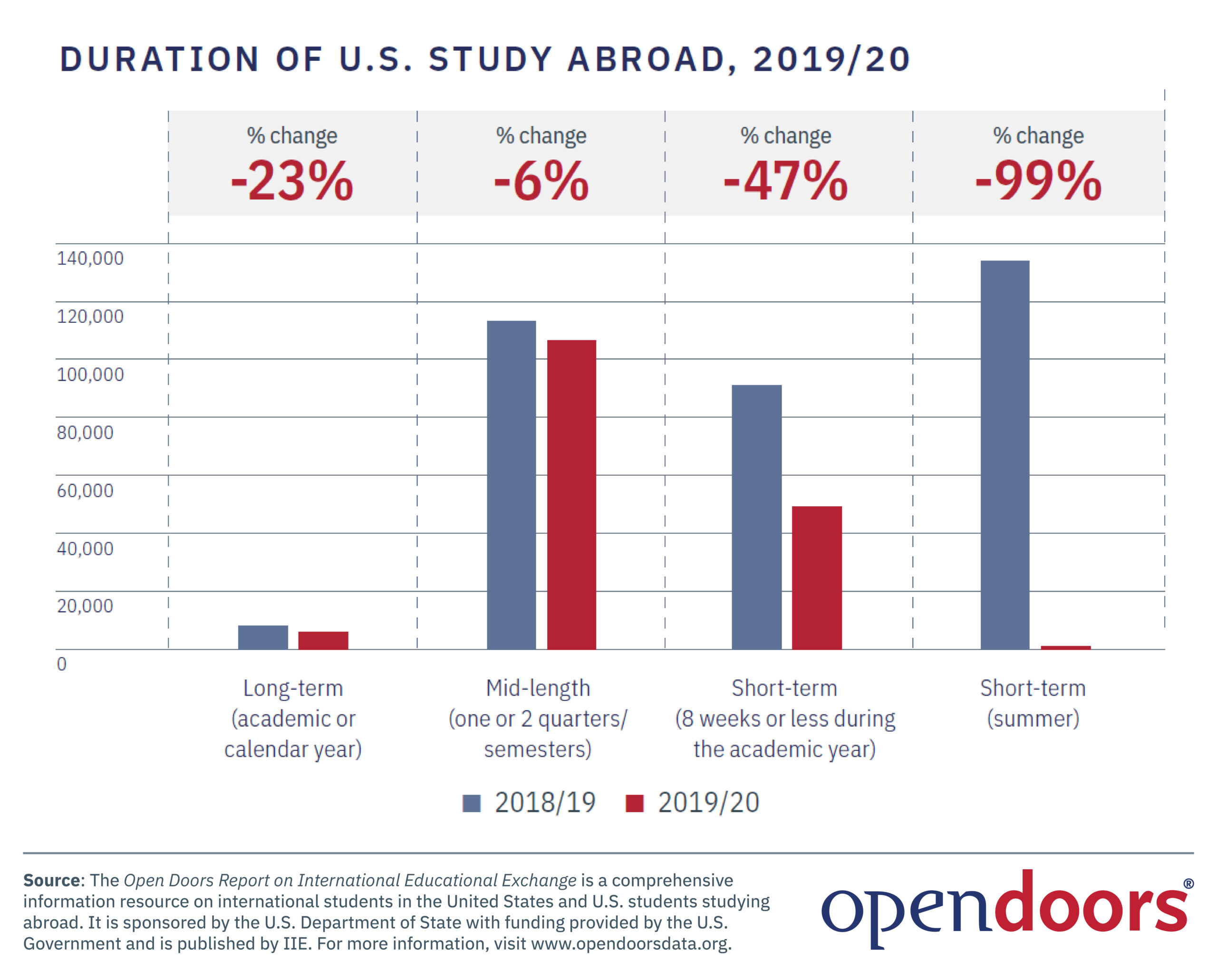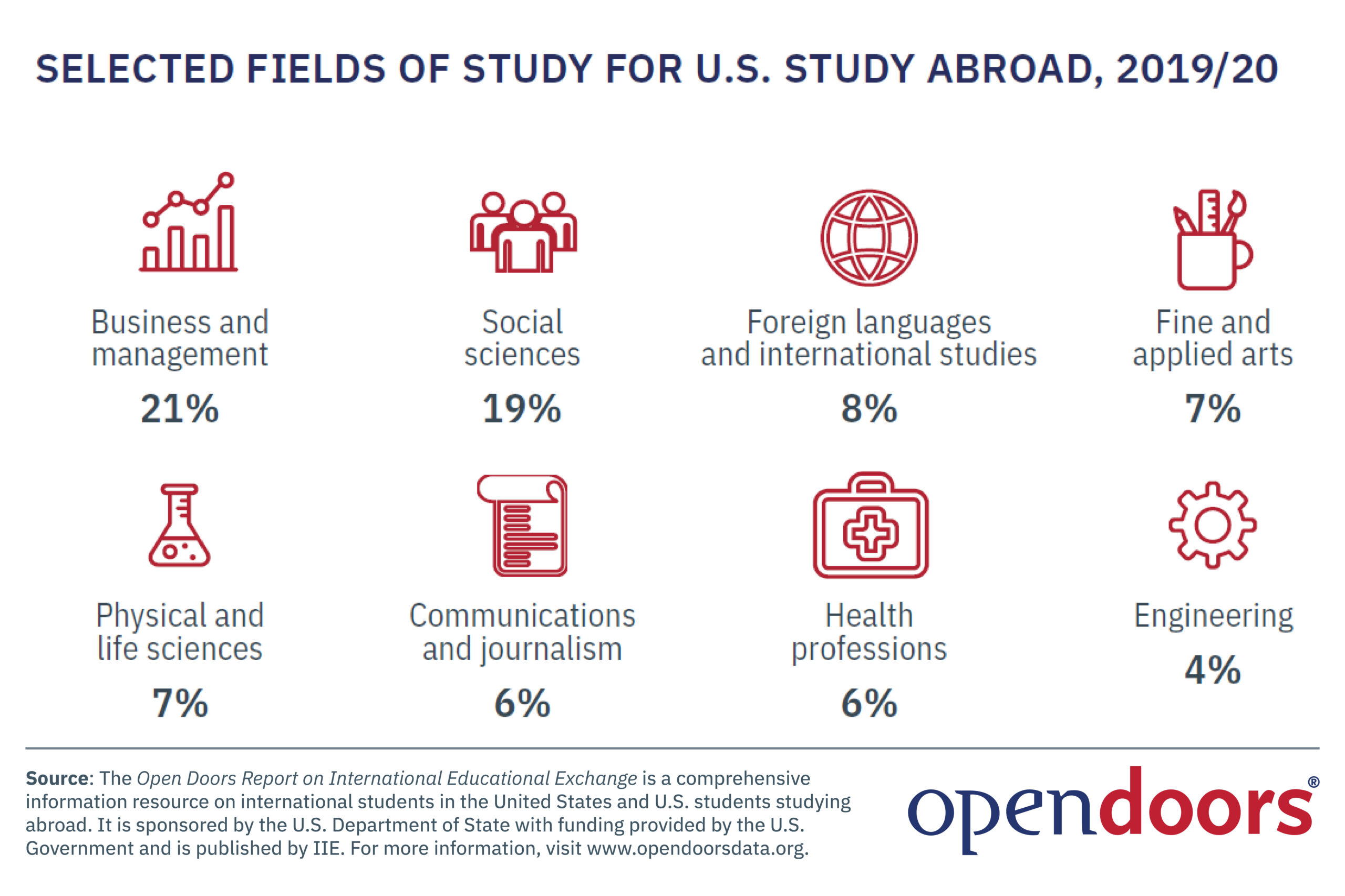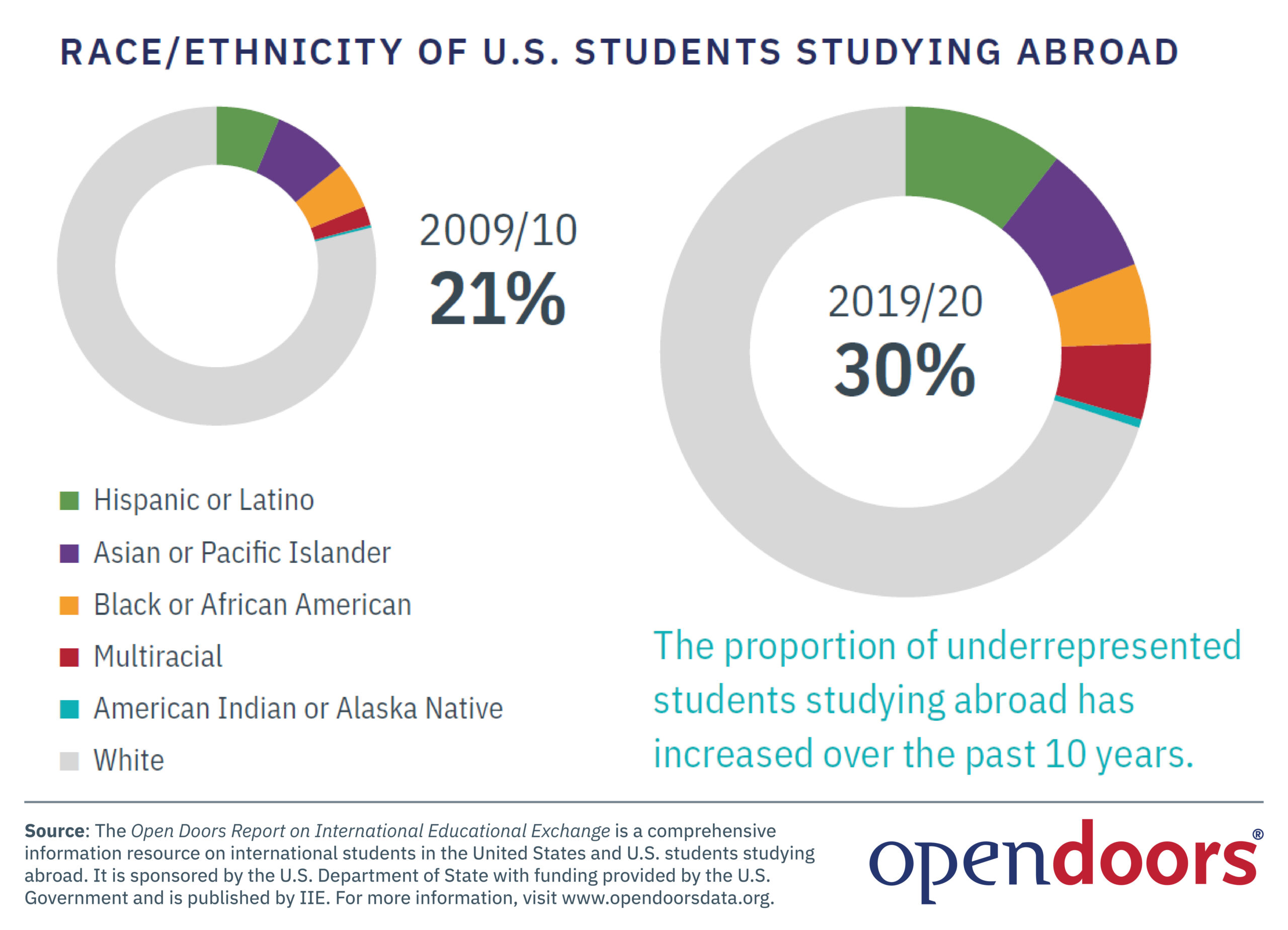Study abroad was all but wiped out in the spring and summer of 2020, with thousands of students being returned to American soil. Scrambling to provide enriching experiences, some higher education institutions pushed programs online, meeting the needs of about 10,000 students.
The travel environment, though still uncertain and ever-changing, is looking far better now for those in-person experiences.
The pandemic is still affecting scores of countries including the United States and top destinations such as the UK, France and Italy, but study abroad is beginning to open up again. The University of Pennsylvania reports that 191 students have been awarded placement in programs for the spring of 2022, a lower number than the 350 in 2020 but far higher than the 39 currently in other countries. Bowdoin University’s numbers have more than doubled from last year.
The University of Michigan happily reports that more than 1,500 students have submitted applications for study abroad in winter 2022, a number that is strong though still not reaching nearly 2,200 before the pandemic. What has changed dramatically are the number of programs being resurrected and the number of countries accepting U.S. students—at Michigan, they say it has jumped from around 30 this past spring to 120. The difference this year is that U.S. students have access to vaccines.
“The ability to travel has been expanded in recent months and the safety of going on a trip for vaccinated travelers has greatly improved,” says Patrick Morgan, chief international safety officer at the University of Michigan. “Many winter term programs have been approved to accept students; students just have to prepare better. In collaboration with our international education partners, we created a unique process to guide them and make their experience abroad safer and more successful.”
Michigan’s process spells out clearly how students must navigate through the still very complex path, which includes completing a COVID travel safety plan, to get approved for travel to other countries. Many countries still fall under the Centers for Disease Control and Prevention’s Level 4 Very High status for COVID-19 transmission—including Russia, the UK, Greece, Switzerland, Israel and Malaysia—so students must ensure that they not only have the proper paperwork approved by the university but documents required to travel to those countries. Some require negative tests or proof of full vaccination. Cautious institutions are still barring travel to Level 3 and Level 4 countries due to safety concerns.
The U.S. Department of State, whose Bureau of Education worked with the IIE on the Open Doors report, offers a resource for colleges’ study abroad programs and students regarding Do Not Travel and Reconsider Travel guidance, both related to COVID-19 and potential terrorist activities. Syracuse University is one of the many institutions providing an updated and comprehensive FAQ resource to students for study abroad questions.
The IIE and the State Department’s Bureau of Educational and Cultural Affairs (ECA) note the merits of pushing ahead on study abroad, from the cultural experiences afforded to students to keeping international relations strong. Some institutions are keeping online options open if they can’t forge those arrangements for countries overseas but most are exploring those in-person opportunities.
“We must recommit ourselves to ensuring that international educational experiences become even more accessible and reflective of the rich diversity of the United States,” said Matthew Lussenhop, Principal Deputy Assistant Secretary at the U.S. Department of State’s Bureau of Educational and Cultural Affairs. “Study abroad and global education programs are going to be essential to the development of the next generation of American leaders in all fields. Through the Fulbright exchange program, the Benjamin A Gilman International Scholarship Program and others, we are going to work hard to expand access to all international experiences for all Americans.”
That expansion includes a grant program from the IIE dedicated to improving diversity, equity and inclusion for students throughout the U.S. by giving them free passports. There are 40 institutions participating, and Virginia Tech University is one of them, matching the number from the IIE to boost their pool of eligible students.
In addition to the strong surge in study abroad numbers, international students coming to the U.S. also have ballooned this semester despite challenges related to the pandemic.











